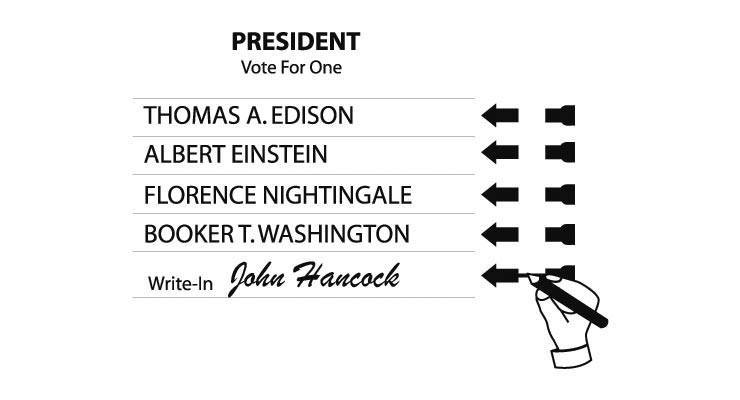
Should California write-in candidates be forced to to pay up to get counted in all state elections
Democracy, elections and voting at Democracy Chronicles
By Richard Winger from Ballot Access News:
California Assemblymember Frank Bigelow has introduced AB 372, to require write-in candidates to pay a filing fee if they are running for a partisan office and place first or second in the June primary. The bill is probably prompted by the fact that in 2014, Bigelow was the only name on the primary ballot for Assembly, 5th district. But a Libertarian, Patrick D. Hogan, filed as a write-in in the June primary, and came in second, since there were only two people eligible to receive votes, Bigelow and Hogan. In November, Hogan was the only Libertarian on the California ballot for a partisan race and he got 25.75% of the vote.
The California filing fee is 2% of the office’s annual salary for statewide office, and 1% of the office’s annual salary for district office. If the bill had been in effect in 2014, Hogan would not have been on the November ballot unless he paid almost $1,000 to election officials.
In 1972, the California Supreme Court issued an order, letting Socialist Labor Party candidate Herb Steiner file as a declared write-in candidate for U.S. House without paying any filing fee. That decision is not published but can be found in the minutes of the California Supreme Court in volume 62, page 533. Also in 1974 the same court issued a full opinion in Knoll v Davidson, 12 C. 3d 335, saying that the U.S. Constitution requires that all candidates, not just indigent candidates, must be given a way onto the ballot without paying a filing fee.
In 1989, the Fourth Circuit struck down a Maryland law requiring declared write-in candidates to pay a filing fee, Dixon v Maryland State Adm. Bd. of Election Laws, 878 F 2d 776. In 2000 a U.S. District Court struck down a West Virginia law requiring write-in candidates to pay a filing fee, Phillips v Hechler, 120 F Supp 2d 587 (s.d.). The basis for these decisions is that filing fees are unconstitutional unless they are needed for the purpose of keeping ballots uncrowded, yet a write-in candidate’s name doesn’t appear on the ballot so it doesn’t cause a cluttered ballot. Applying this principle to the California general election, clearly no filing fee is needed, because California general election ballots for partisan office other than president cannot include more than two names on the ballot, so obviously there is no fear of a cluttered ballot.
California requires write-in candidates for partisan office other than president to collect 40 signatures (if they are running for district office) or 65 signatures (if they are running for statewide office). AB 372 will be heard on April 15.
Leave a Reply